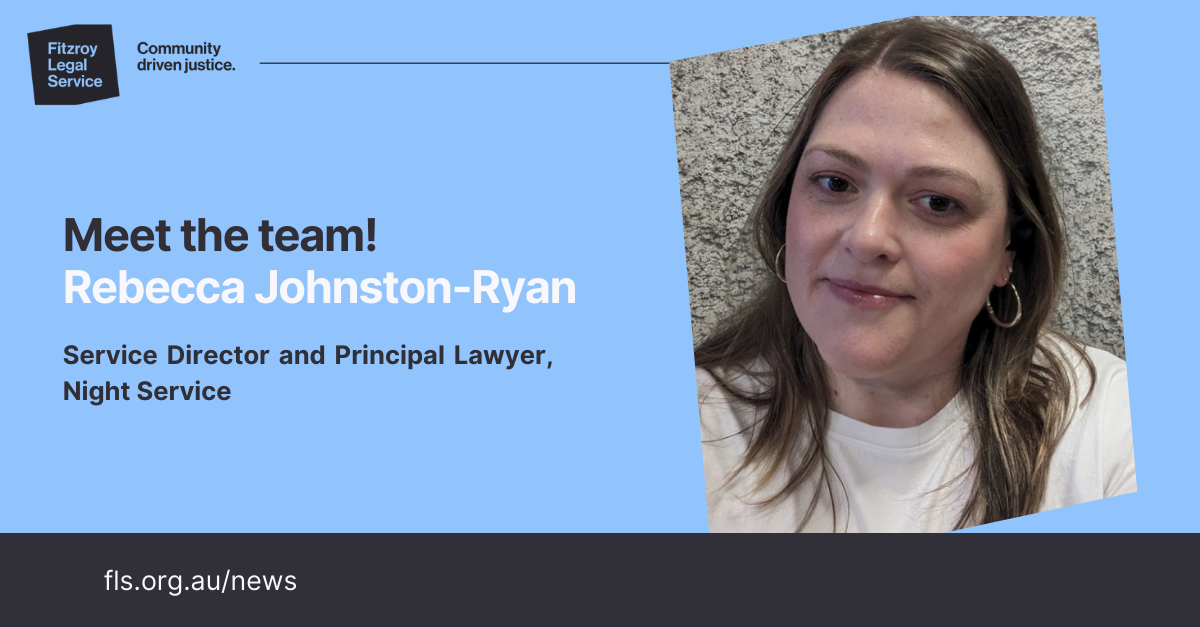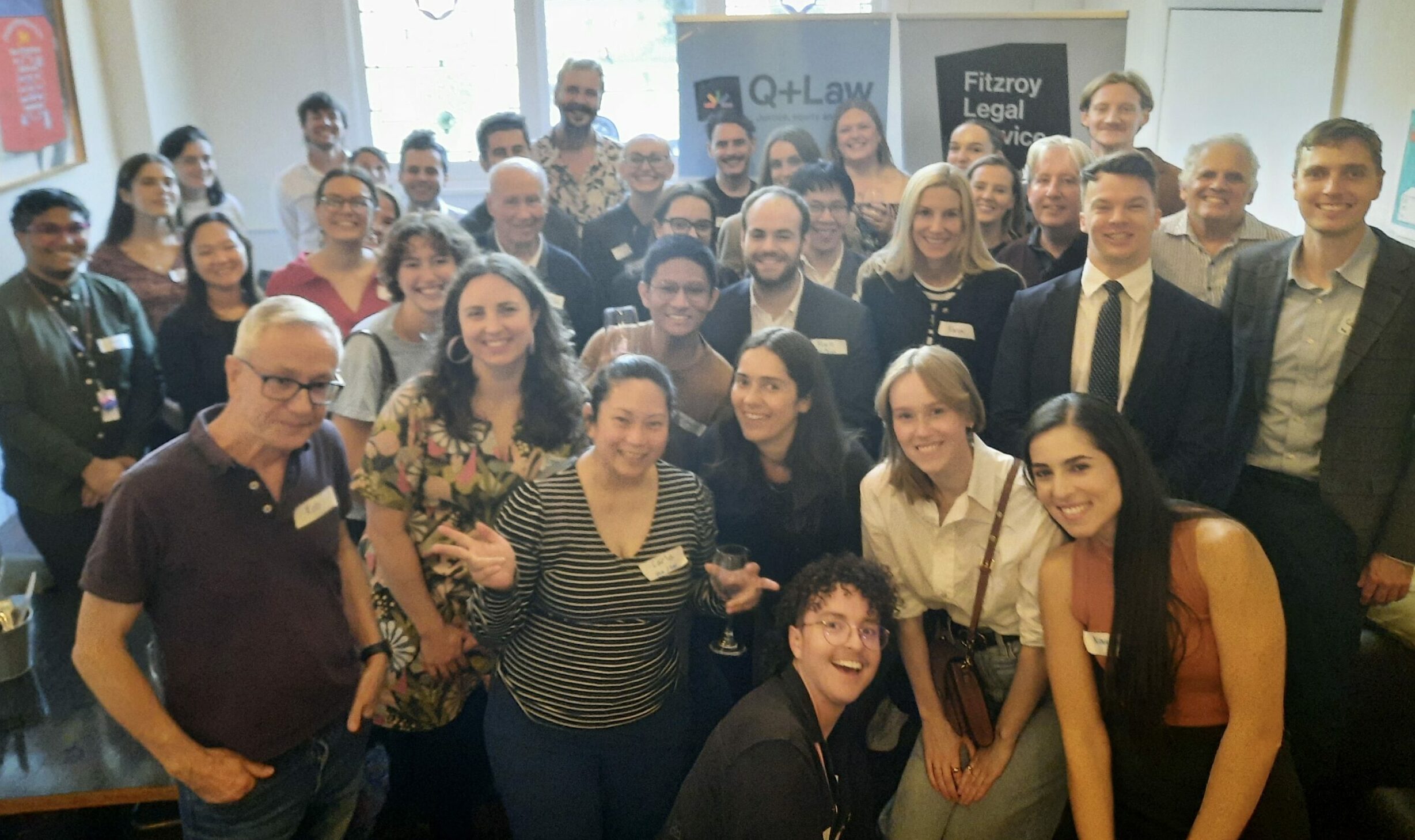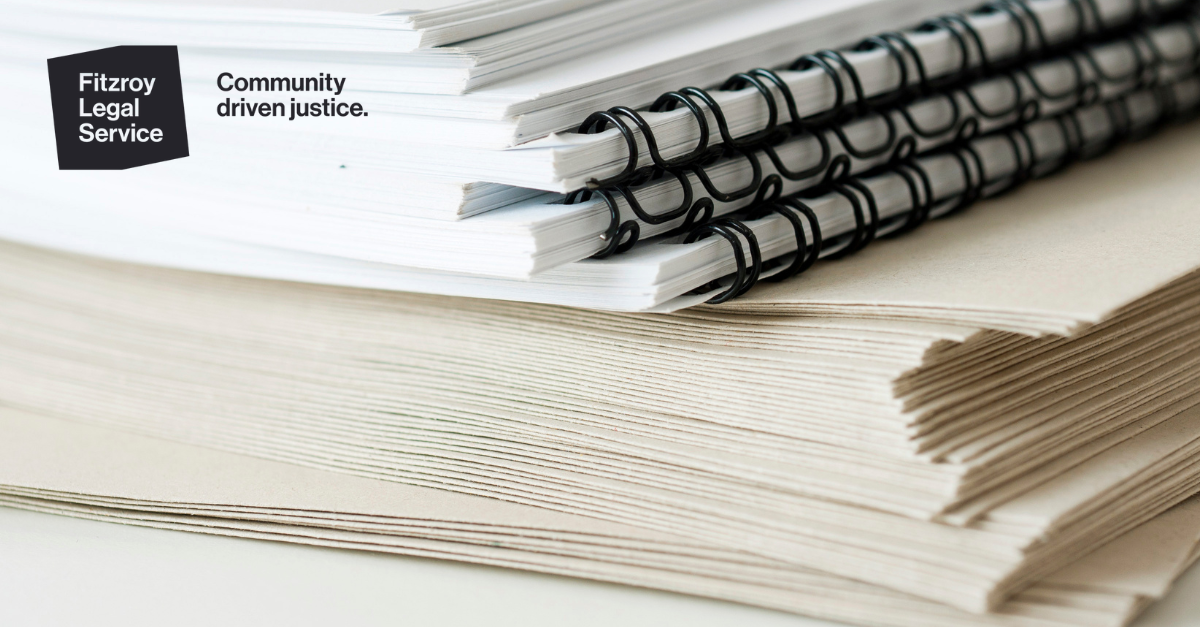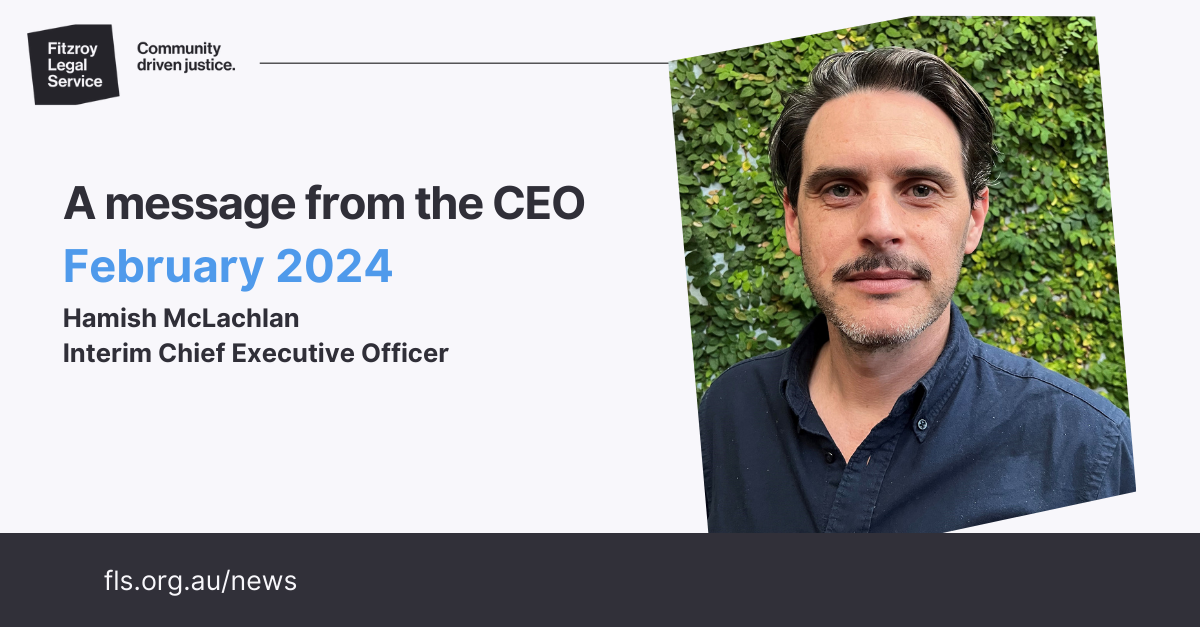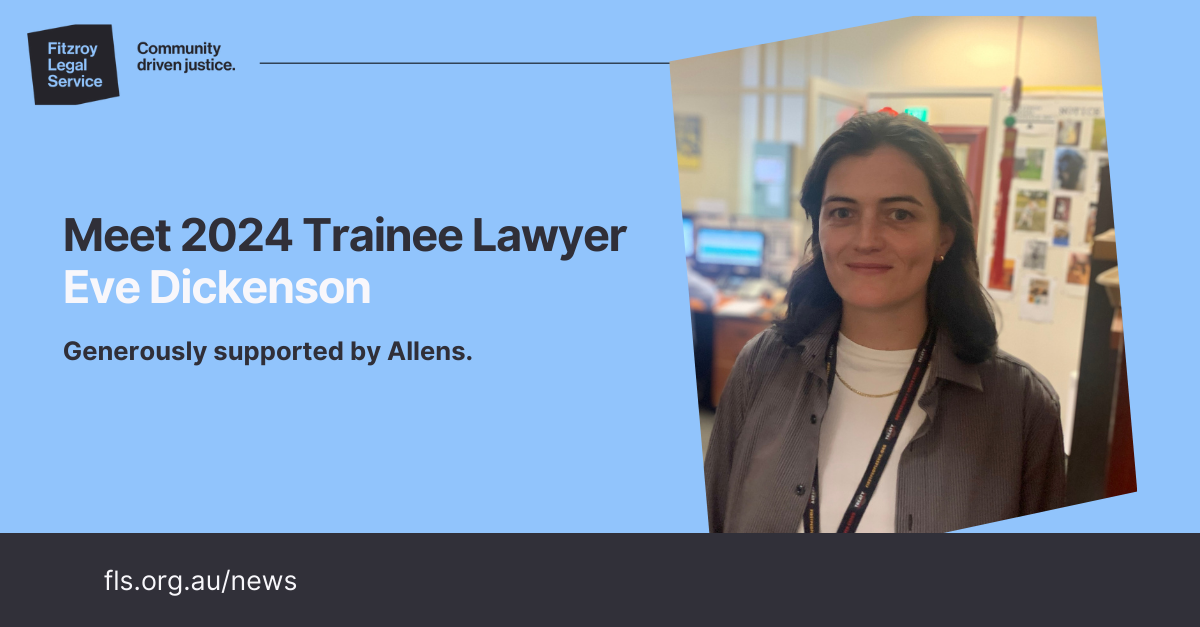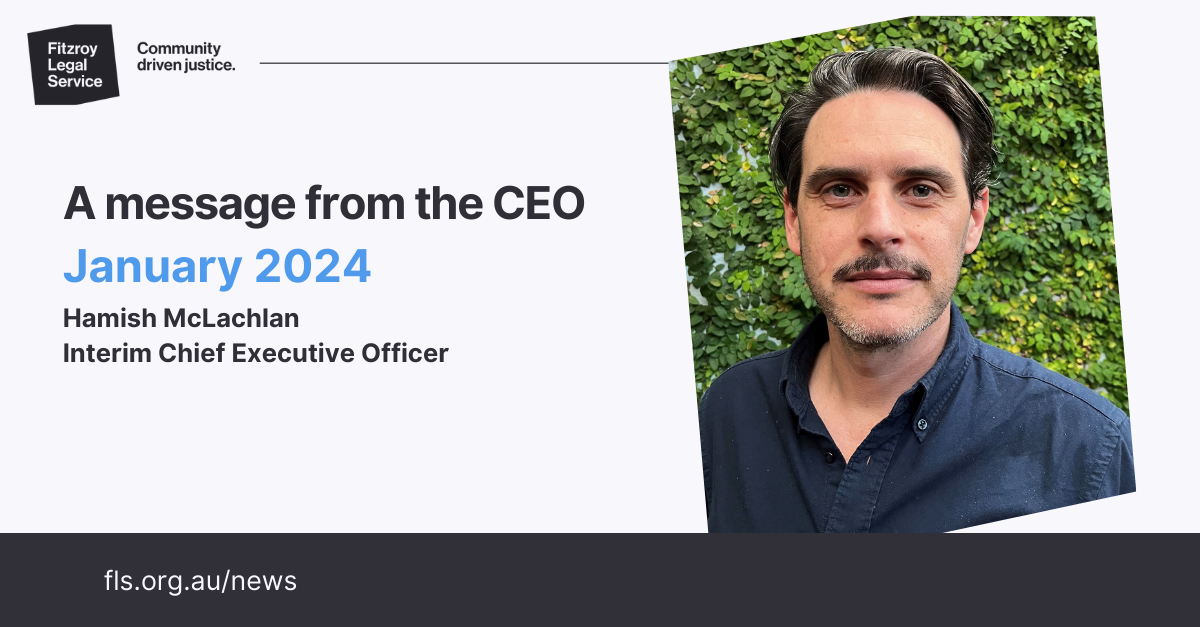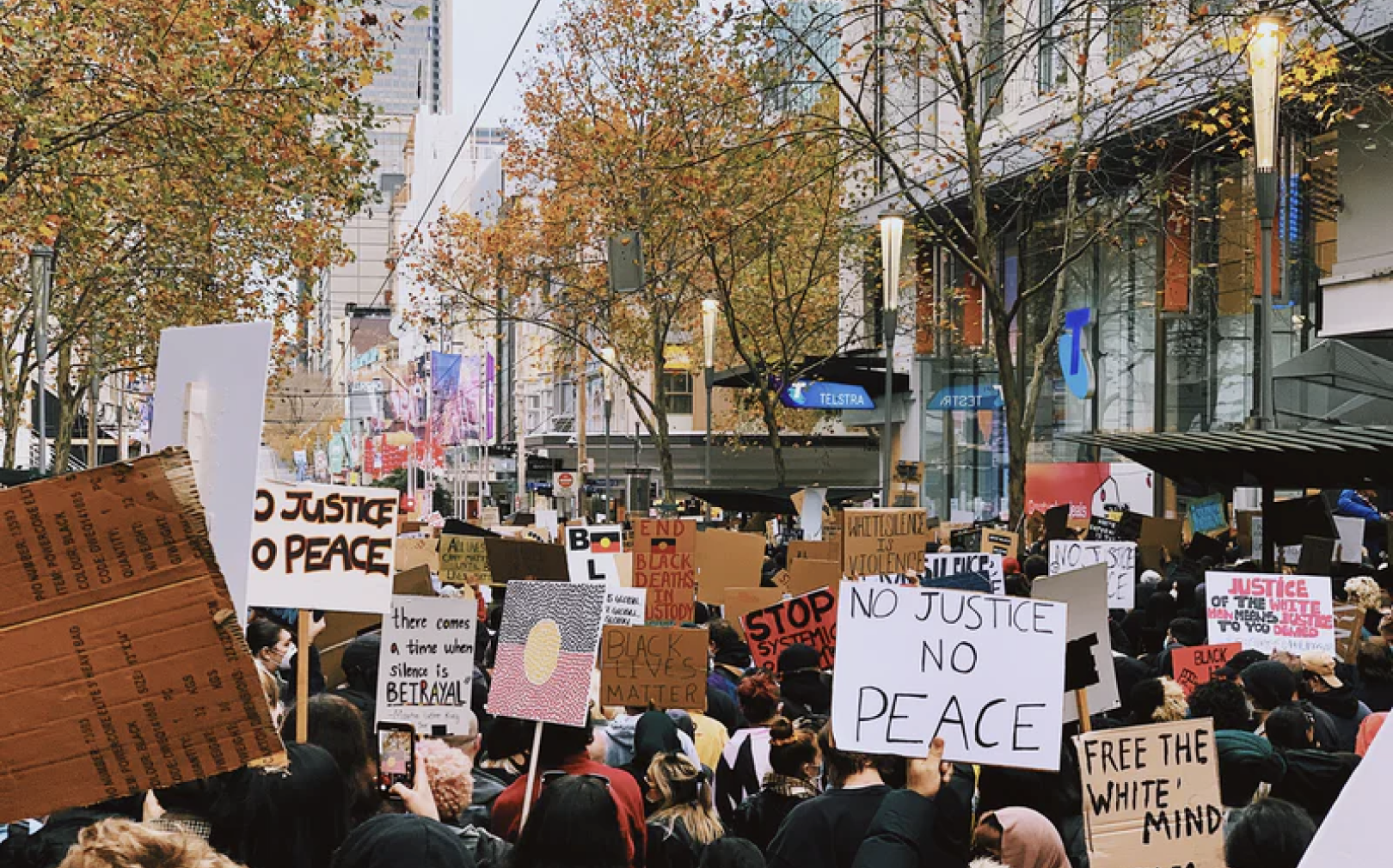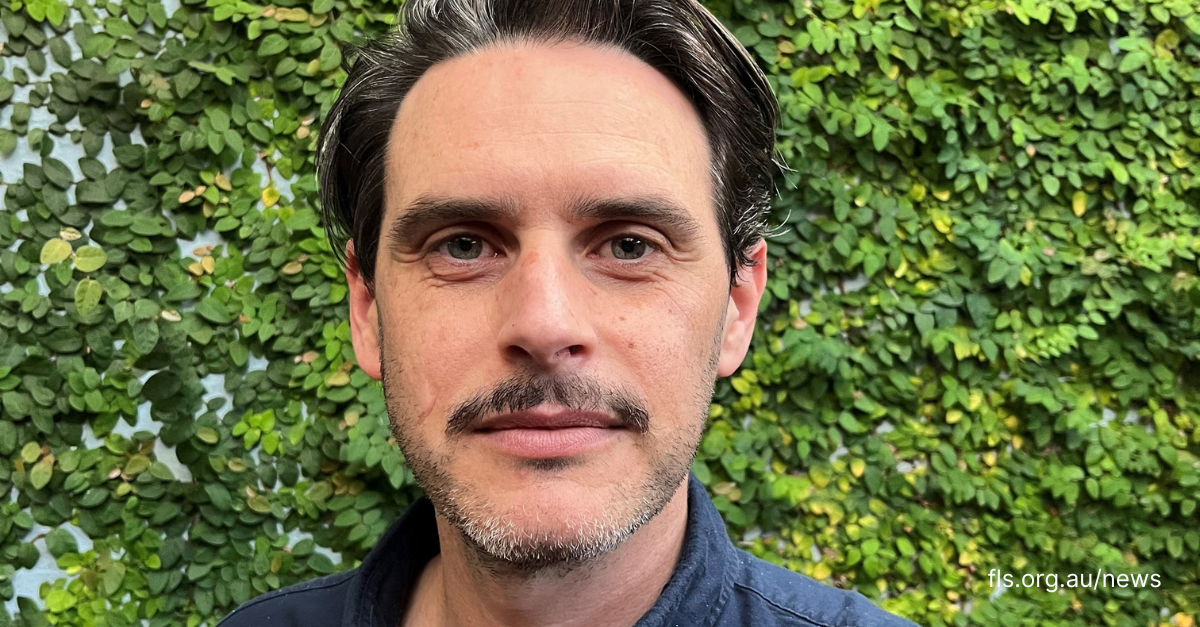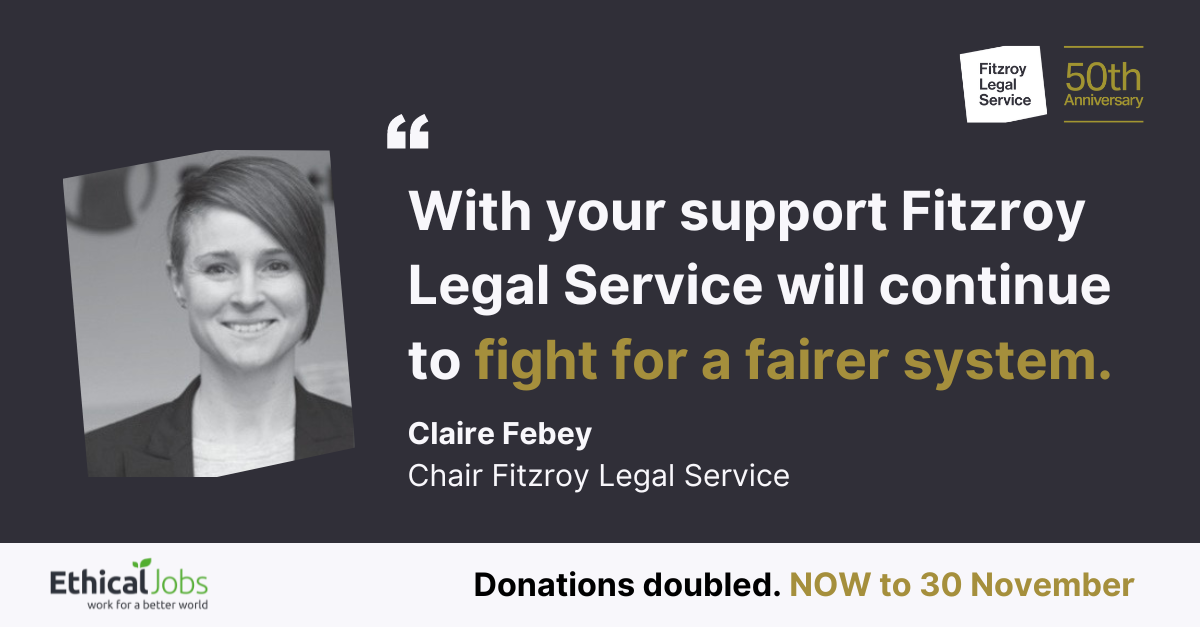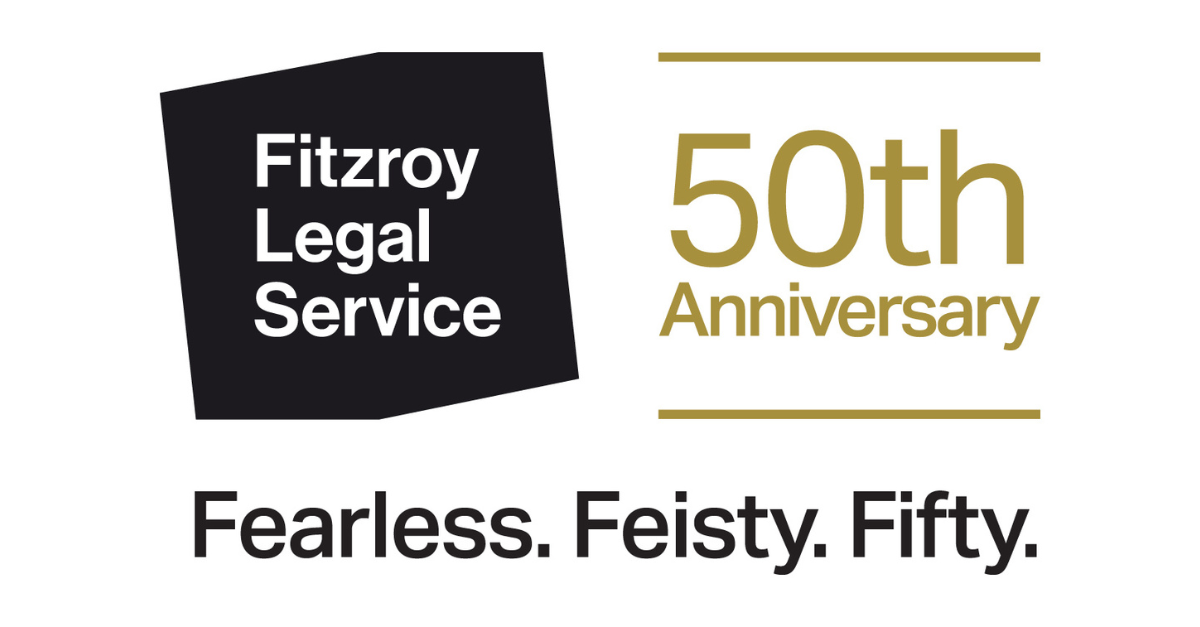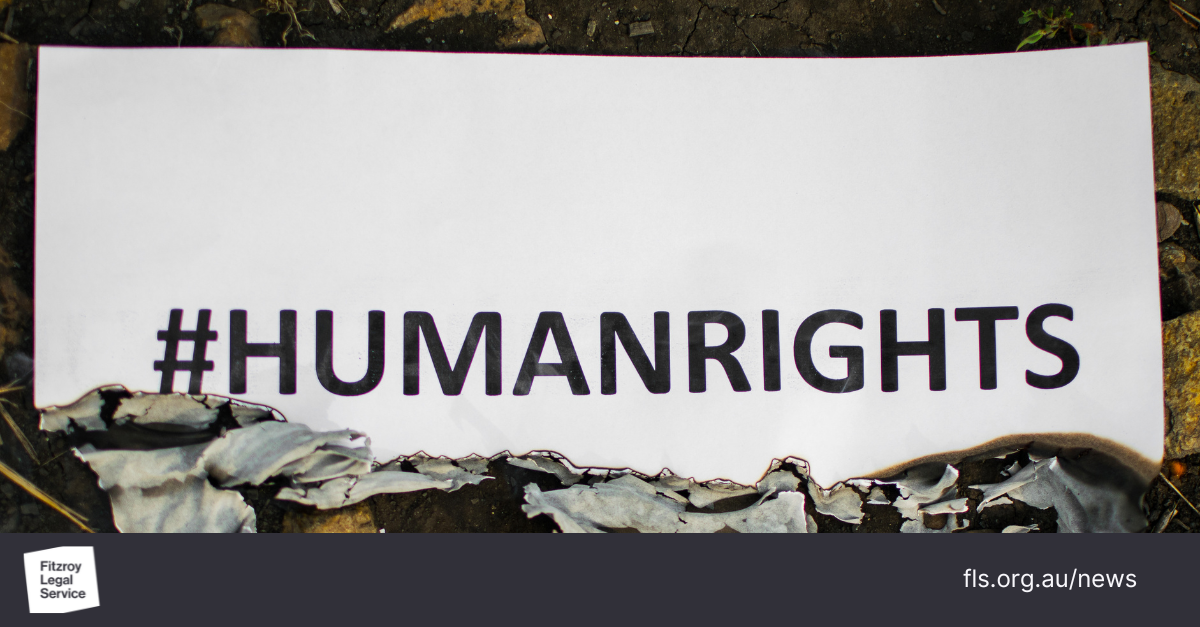19 September 2023
Fitzroy Legal Service is pleased to have made a submission to Stage 1 of the Victorian Government’s consultation on Strengthening Victoria’s laws against hate speech and hate conduct, which is looking into strengthening Victoria’s anti-vilification laws.
Fitzroy Legal Service assists a wide range of communities that are targeted by vilification, including: racialised communities; religious minorities; people with disabilities; LGBTIQA+ communities; people who use drugs; and people experiencing homelessness. We work with these communities every day, and we know that our clients are often targets of hate.
Vilification is inciting hatred against someone because they are part of an oppressed group. There are some protections in Victoria, however they are very difficult to prove and currently only protect against racial and religious vilification. The government is proposing to add protections based on disability (including specifically HIV/AIDS status), LGBTIQ+ communities, sex/gender, and people who are personally associated with targeted groups.
In our submission, we strongly supported the expansion and strengthening of anti-vilification protections in Victoria to prevent hate speech against people in our community.
In addition to protected attributes proposed by the government, we also advocate for the inclusion of sex workers; people experiencing homelessness; immigrants; people with blood-borne viruses; asexual people; and people with non-personal associations with targeted groups, such as those providing goods or services.
Protections also must be able to be considered from an intersectional lens, to reflect the compounding harm and impact of vilification when a person or group has more than one protected attributes:
“Each person has a whole identity, which is made up of intersecting attributes. While race, religion and gender may be conceptually divisible, those three factors are not divisible for that person, but rather make up their whole. “
FLS also argues that anti-vilification laws must consider the context (social, historical and political) and power dynamics (status and position of the speaker) should be included in the legal test for vilification:
“Recognising the historical context and resulting power dynamics that feed vilification is therefore important when addressing vilification… It is vital that anti-vilification legislation reflects these factors and is directed to addressing the systemic nature of disadvantage to protect marginalised groups.”
Critically, in our submission we recommend that “Resourcing should be provided to Community Legal Centres and other legal services to assist communities targeted by vilification and effectively utilise the protections.” Currently, anti-vilification laws are rarely used to protect the community from hate speech . Community Legal Centres have an important role in making the protections accessible to communities, because of our deep connections to our communities, we are embedded in communities at a grassroots level and we have close relationships with community service partners.
FLS welcomes the opportunity to provide further input into Stage 2 and 3 of the consultation process.
















